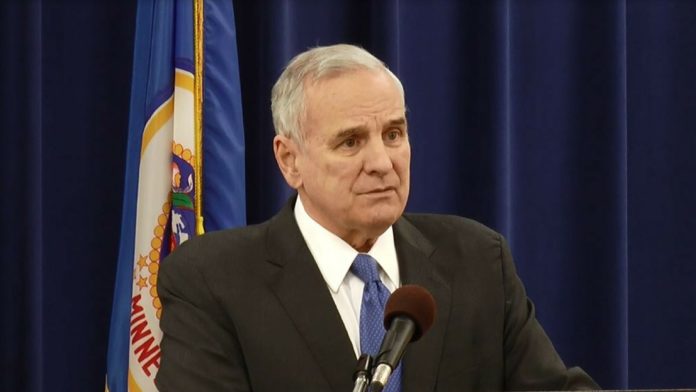ST. PAUL, Minn. – Minnesota Governor Mark Dayton (DFL) called on lawmakers to make several changes to the Republican-led reinsurance bill, a bill designed to have the state take on excessive healthcare costs in an attempt to lower premiums.
As Alpha News reported, under the reinsurance legislation passed by the house on March 13, insurance companies with a claim exceeding $50,000 would be eligible for over 50% reimbursement, up to $250,000 in claims.
Dayton sent letters to every legislator on the reinsurance conference committee detailing the changes he wants to see.
Dayton’s first request is that the legislation includes language making reinsurance contingent upon receiving federal funding, noting that HHS Secretary Tom Price encouraged governors to take advantage of a waiver that will have the federal government pay up to 30 percent of a state’s reinsurance costs.
Dayton also disagrees with the funding mechanism proposed by republicans. The current legislation proposes funding reinsurance through the General Fund, the Healthcare Access Fund, and the Budget Reserve. Dayton would prefer a tax on the healthcare industry itself in order to cover the costs.
“We worked so hard to really establish fiscal integrity and fiscal stability for state government and I’m not going to see that sacrificed for short-term partisan gain,” Dayton said during a Wednesday press conference.
During the press conference Dayton said he will not sign any reinsurance legislation until he hears from insurance leaders agreeing that they will not increase premiums and that they will serve Minnesotans in the individual market.
Lastly, Dayton heavily stressed to lawmakers that he believes the reinsurance legislation should include a buy-in option to MinnesotaCare, a program that provides healthcare to low-income Minnesotans.
As Alpha News previously reported, an amendment to the reinsurance legislation in the Minnesota Senate that added a buy-in option to MinnesotaCare failed with a tied 33-33 vote on March 15th.
“The time has passed for all the finger pointing, blaming, and scapegoating.” Dayton said, urging lawmakers to act quickly before the April 1st deadline, when insurance companies start setting premium rates for 2018.
Have a story tip? Email us at pbagnpghf@nycunarjfza.pbz

















